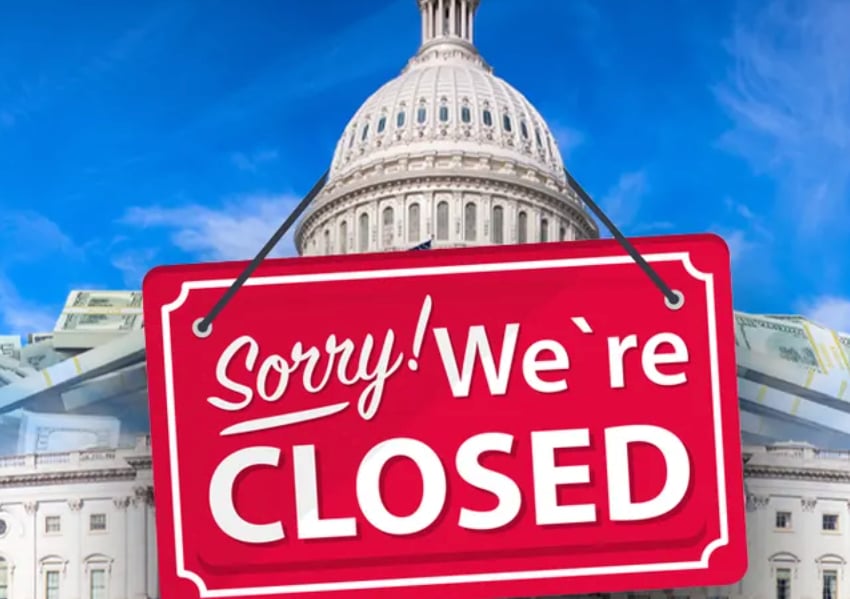Shutdown Escalates: White House Rolls Out Federal Layoffs in Bold Move Against Gridlock
10/12/20254 min read


Shutdown Escalates: White House Rolls Out Federal Layoffs in Bold Move Against Gridlock
By Boncopia News Desk | October 11, 2025
As the U.S. government shutdown barrels toward its third week, the White House has unleashed a seismic shift: mass layoffs of federal workers. On Friday, October 17, Office of Management and Budget (OMB) Director Russell Vought dropped a bombshell on social media, declaring "RIFs have begun"—Reduction in Force procedures that signal permanent job cuts for thousands. This isn't a bluff; it's a calculated strike amid congressional paralysis, aimed at trimming bureaucracy and forcing a funding breakthrough. With families facing empty paychecks and shuttered services, Trump's team is betting big that this pressure cooker will crack the stalemate. But at what cost to America's workforce?
Imagine logging into your email after a grueling, unpaid shift, only to find a pink slip. That's the nightmare unfolding for over 4,000 federal employees across key agencies. The Treasury Department and Health and Human Services (HHS) are reeling hardest, with more than 1,400 and 1,200 notices, respectively. Homeland Security, Education, Energy, Commerce, and even the IRS are in the crosshairs, as the administration targets roles deemed non-essential or misaligned with priorities like border security and fiscal restraint. Vought's post wasn't hyperbole; it's the fulfillment of threats issued since Day 1, when funding lapsed on October 1 over clashing visions for spending.
The Stalemate Deepens: A Week-by-Week Breakdown
This shutdown isn't a surprise—it's the culmination of partisan trench warfare. Here's how it unfolded:
Week 1 (Oct. 1-7): Congress deadlocks on a continuing resolution (CR). Republicans push a clean bill through November 21, but Democrats insist on extending Affordable Care Act (ACA) premium tax credits expiring year-end—lifelines that have cut premiums by 40% for millions. Furloughs hit 750,000 workers; national parks close, IRS refunds stall. Trump vows no deal without concessions, while Senate Leader John Thune warns of "imminent" layoffs.
Week 2 (Oct. 8-14): Troops get paid via emergency funds, a win for military families. But civilian pain mounts—partial September paychecks arrive, October's vanish. White House holds $18 billion in NYC infrastructure funds and $8 billion in Energy grants to blue states, escalating the feud. Unions sue to block RIFs, citing laws mandating 60-day notices (waivable to 30). A federal judge schedules a hearing for October 22.
Week 3 (Oct. 15-Now): RIFs launch. Vought's announcement syncs with Trump's Oval Office remarks: "Democrats shut it down—they own the fallout." Senate rejects another CR pair; healthcare subsidies remain the flashpoint. Economic ripples hit: GDP growth dips 0.15%, small vendors near bases scramble.
This timeline reveals a White House playing hardball, using the shutdown as leverage to enact long-sought reforms. Critics call it cruel; supporters see it as overdue housecleaning.
Vought's Hammer: The Man Behind the Memo
Enter Russell Vought, OMB chief and Trump's fiscal enforcer. A Project 2025 architect, Vought's no stranger to controversy—his 2020 tenure drew fire for pushing executive overreach. Now, he's wielding RIF authority under the 1990 Budget Control Act, which allows workforce reshaping during lapses. "These aren't furloughs; they're fixes for bloat," Vought posted, echoing Trump's mantra of "draining the swamp."
The math is stark: Federal payroll tops $500 billion yearly; these cuts target "low-priority" roles, potentially saving $2-3 billion short-term. But legal hurdles loom—unions argue RIFs violate anti-deficiency laws, with criminal penalties for improper firings. Even some Republicans, like Sen. Susan Collins, balk: "Federal work serves the public—don't punish the dedicated." Yet, as Press Secretary Karoline Leavitt quipped, "If Dems funded the government, we'd all be spared this."
Human Toll: Stories from the Firing Line
Behind the headlines are heartbroken households. At HHS, CDC analyst Dr. Elena Ramirez got her notice mid-vaccine rollout pause: "I've served through pandemics—now I'm collateral in D.C. games." Treasury's Mark Thompson, a 20-year vet, faces mortgage default: "Backpay's a promise; this is permanence." Social media erupts—#FedFired trends with tales of raided savings and job hunts. One X user vented: "Shutdowns furlough; this decimates. Who's next—vets or teachers?"
Bipartisan outrage brews, but so does praise from fiscal hawks. Rep. Marjorie Taylor Greene tweeted: "Finally, accountability—shrink gov't, save taxpayers!" The irony? Many laid-off workers are in red districts, testing GOP unity.
Economic Shockwaves and Security Shadows
Beyond pink slips, the fallout cascades. Layoffs could idle critical ops—cybersecurity at DHS, student aid at Education—risking data breaches or loan delays. Moody's warns of a 0.2% GDP shave if unresolved by November; consumer confidence plummets. Trump's earlier troop pay fix averted military unrest, but civilians lack that shield.
On security, Vought assures essentials continue: "No gaps in defense or borders." Yet, with the Senate adjourning sans vote, whispers of a "Trump veto bomb" grow—conditioning aid on ACA cuts.
A Reckoning for Reform: Unity or Upheaval?
These RIFs aren't just cuts; they're a referendum on the government's size. Trump's using shutdown chaos to fast-track efficiency, blaming Dems for the mess. As Vought put it, "Time to right-size for real priorities." But with unions in court and midterms looming, this gamble could backfire—or birth a leaner bureaucracy.
Boncopia will keep watch as this unfolds. One truth endures: Washington's games shouldn't gut the guardians of public good
Thought Questions:
Do these layoffs pressure Congress toward compromise, or deepen the divide?
Should RIFs during shutdowns be banned to protect essential workers?
Who's truly at fault: Dems on healthcare, GOP on spending, or both?
hello@boncopia.com
+13286036419
© 2025. All rights reserved.